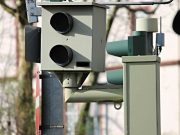As a parent of two children who has been through the German education system, I have a unique perspective on the successes and challenges of this system. In this article, I will share my personal experience and observations about the German education system, from Kindergarten to University.
Kindergarten: My children started their education in a German Kindergarten, and I was impressed by the structure and support provided by the system. Kindergarten is not compulsory in Germany, but it is highly recommended for children between the ages of three and six. The curriculum is designed to encourage social skills, language development, and physical activities. The focus is on play-based learning, and the children are encouraged to explore their environment, interact with their peers, and develop their creativity. The Kindergarten teachers are highly trained and create a nurturing and safe environment for the children.
Primary school: After Kindergarten, my children moved on to Primary school, which is compulsory in Germany for children between the ages of six and ten. The German Primary school curriculum is rigorous and highly structured. The children are expected to learn German, Maths, Social Studies, Science, Art, Music, and Physical Education. The focus is on developing strong foundational skills, and the teachers are highly trained to teach various subjects. One of the strengths of the German education system is the emphasis on learning through experience, and this is reflected in the Primary school curriculum. Children are encouraged to participate in field trips, experiments, and hands-on activities that deepen their understanding of the subjects.
Secondary school: After completing Primary school, my children moved on to the Secondary school system, which is divided into three different types: Hauptschule, Realschule, and Gymnasium. The Hauptschule is the least academically demanding, followed by the Realschule, and the Gymnasium is the most demanding. Students are sorted into these schools based on their academic abilities and interests.
My children were sorted into the Gymnasium, and I was impressed by the high academic standards and the excellent teaching. The focus was on developing critical thinking skills, research, and independent study. The curriculum was rigorous, and the students were expected to learn a range of subjects, including Maths, German, English, Science, History, and Geography. One of the most significant advantages of the German Secondary school system is the ability to choose a specialized course of study. My daughter chose to specialize in Music, and my son chose to specialize in Physics. This allowed them to pursue their interests and develop their talents.
University: After completing Secondary school, my children went on to University. Germany has an excellent University system, which is highly respected worldwide. The University education is free of charge for German students, and the quality of the teaching and research is world-class. My daughter is studying Music Education, and my son is studying Physics. Both of them have been impressed by the high academic standards and excellent teaching.
Conclusion: My experience with the German education system has been overwhelmingly positive. The system is rigorous, highly structured, and encourages learning through experience. The teachers are highly trained, and the curriculum is designed to develop critical thinking skills and independent study. The ability to choose a specialized course of study in Secondary school is a significant advantage of the German education system. The University system is world-class, and education is free of charge for German students.
References:
- “Education in Germany.” Federal Foreign Office of Germany, 23 Feb. 2021, www.auswaertiges-amt.de/en/aussenpolitik/themen/kulturdialog/education-in-germany.
- “Kindergarten in Germany.” German Way & More, 2022, www.german-way.com/for-expats/living-in-ger














